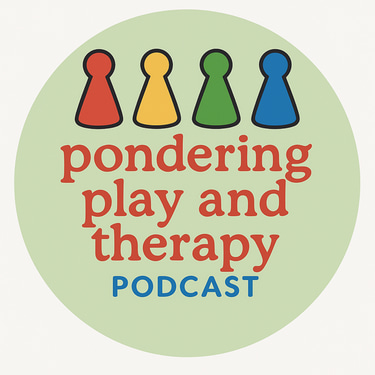Unlocking the Power of Play: Insights from Marguerite Hunter Blair, OBE 🎙️
In a thought-provoking podcast episode titled "The Child’s Right to Play," Philippa explores the transformative impact of play on children's development with celebrated guest Marguerite Hunter Blair, OBE. As the Chief Executive of Play Scotland, Marguerite has dedicated her career to championing children's right to play, fundamentally reshaping Scotland's approach to child development and learning.
Philippa
7/4/20252 min read


A Journey of Advocacy and Recognition
Marguerite's accomplishments, highlighted by the receipt of an OBE for services to play, are nothing short of pioneering. From establishing Scotland's first Play Commission to advocating for statutory play duties in the Planning Scotland Act 2019, her journey underscores the significance of play in national policy. Marguerite shares her personal experiences of discovering the multifaceted benefits of play during her tenure in community development—a revelation that set her on a path to promote and institutionalize play across Scotland.
Playfulness Reimagined: From School to Community
As the discussion unfolds, Marguerite and Philippa ponder the evolving landscape of play, challenging misconceptions that confine play to early childhood. They paint a vivid picture of how play enriches learning, from preschool to secondary education, through creative, social, and intellectual engagement. Emphasising the enduring value of play, Marguerite posits that embracing play is crucial for fostering creativity, resilience, and well-being throughout a child's developmental journey.
Legal Frameworks and National Strategies
Under Marguerite's leadership, Scotland has crafted robust legal and policy frameworks to ensure every child has the opportunity to play. Central to these efforts is the incorporation of children's right to play into Scottish law. The discussion unpacks the intricacies of making play a legal obligation for local authorities, ensuring that communities are systematically assessed and improved to offer sufficient and high-quality play spaces.
Empowering Parents and Practitioners
Acknowledging the role of parents as crucial facilitators of play, Marguerite highlights the need for societal support and resources. Play Scotland has developed a plethora of tools aimed at empowering parents and educators to integrate play into everyday life seamlessly, noting that play is not about structured activities but rather about nurturing children's intrinsic curiosity and joy.
Teenagers and the Inclusivity of Play
The dialogue does not shy away from addressing the challenges and opportunities of extending play into teenage years, a phase often overlooked in play discourse. By advocating for inclusive community spaces and listening to young people's voices, Marguerite outlines how Scotland is redefining environments not just for younger children but for teenagers as well, fostering a sense of belonging and community engagement.
Bridging the Gap: Play and Social Equity
In a profound exploration of play's role in addressing social inequities, Marguerite calls for targeted efforts to rectify the disparities in play access between affluent and disadvantaged areas. The pandemic underscored the importance of accessible and safe play areas as pivotal for community well-being. By acknowledging and addressing these inequities, play becomes a powerful tool for social justice and personal development.
A Call to Action for a Playful Society
Marguerite's reflections encapsulate a vision where play is central to child's education and societal well-being. She passionately calls for collaborative efforts across sectors to recognise play's holistic benefits, urging governments, urban planners, and educators alike to embed play into the fabric of community life.
For further information and resources, Marguerite encourages readers to explore the wealth of knowledge available through Play Scotland and analogous organisations, emphasising that realising these aspirations begins with education.
In closing, Marguerite offers an inspiring reminder: a playful world is a more inclusive and joyous world. By safeguarding and promoting the right to play, we lay the foundation for healthier, more creative, and resilient future generations.
